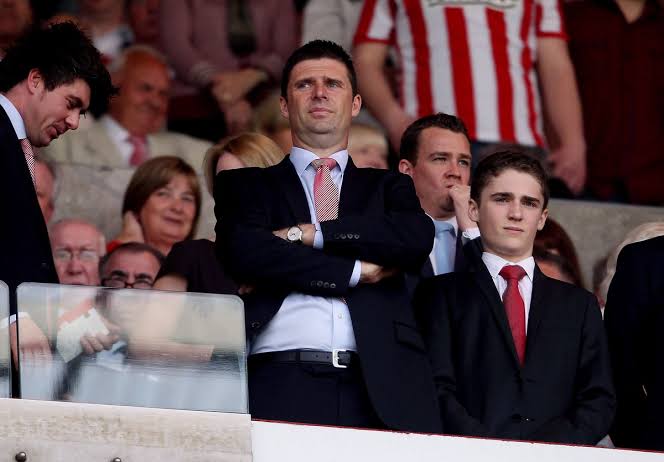The previous chairman of Sunderland disclosed a financial shortfall of £22 million from 2006.
According to Niall Quinn, Sunderland’s finances were in dire straits in 2006.
After his legendary partnership with fellow forward Kevin Phillips, the former striker for Arsenal, Manchester City, and the Republic of Ireland joined Sunderland in 1996 and remained there until 2002, leaving as a clear fan favourite. Quinn scored 67 goals in 218 Sunderland games in all competitions, and following his retirement, he was given a testimonial at the Stadium of Light.
The Dublin native then stepped in to save the team in 2006, leading the Drumaville Consortium of rich Irish businessmen and successfully negotiating a contract to purchase a majority share in Sunderland. Quinn was appointed Director of International Development by American industrialist Ellis Short, who took Quinn’s place as Sunderland chairman five years later. Quinn held the position until 2012, six years after he first became involved, when he resigned.
However, once Sir Bob Murray’s tenure ended, Quinn disclosed in an interview with the club’s YouTube site that Sunderland was facing a staggering £22 million financial shortfall. Fortunately, Quinn finally solved the issue, and Sunderland went on to earn promotion under Roy Keane, a former Manchester United legend.
Quinn remembered: “It was a really bad time at the club, and the most prevalent thing was that they had just let 90 people go from the staff.” It was the lowest, most flat points total ever to be demoted, with 14 professional players remaining and staff being laid off. However, I saw it as a once-in-a-lifetime opportunity.
For the first few weeks, we were not permitted to sign players for cash. At the last minute, Scottish Bank, who owed a significant amount of money—I believe it was £22 million—pulled out of the agreement because they didn’t like who or what we were. We practically had to find money overnight while playing Coventry in the season’s opening match.
“I was down in London with Anglo-Irish Bank on the Friday that I was supposed to be training with the team, trying to get money to make sure the deal went through.” All of it was that tight. Imagine that after my first business job, Anglo Irish Bank allowed me to return to Durham by train, providing an assurance that I would have the £22 million to pay Scottish Bank. It was crazy stuff, then.
“I dropped out of school at the age of 15 or 16, so I hadn’t attended business school, but it began to work.” Naturally, I had trouble at first, but when Roy (Keane) took over as manager and I was free to go about my work while he did his, confidence was restored.
“We were able to get the club back into shape because of the guys in Drumaville.” Over the ensuing years, we had to raise it as high as possible. However, it was an odd era. Did I spend my entire career seeing myself as a football club chairman? No. It took place.
CLICK HERE FOR MORE
